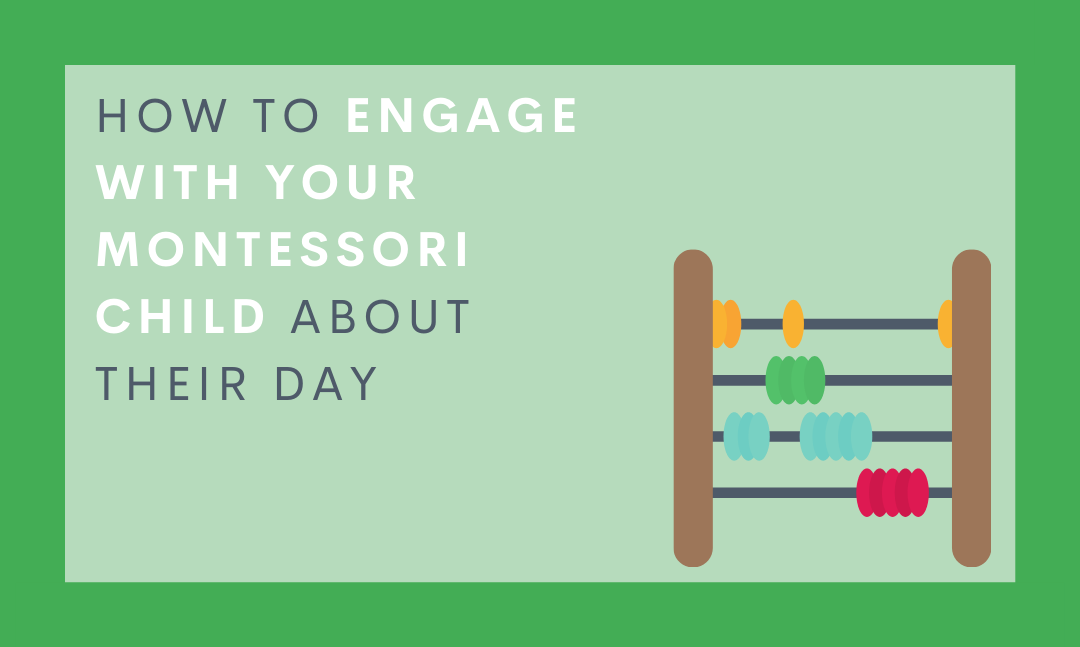If you’re a parent of a school-aged child, you have likely asked about their day and learned little to nothing from their response. Parenting publications often recommend asking specific questions, but that can be a challenge for parents who did not attend Montessori schools. How can you ask your child specific questions about their day if you’re not sure how their day is laid out? Luckily, the Association Montessori Internationale has recommendations, and we’re going to share them with you.
Lead by example.
If you want to learn about your child’s day, start by sharing about your workday. Provide specific details that
mirror information you’d like to learn from your child. For example, if you want to learn about the peers your
child works closely with during the school day, talk about your coworkers and a problem you solved together.
Then, prompt your child by asking something like, “Did you solve a problem with any of your friends at school
today?” Setting an example with specific questions might lead your child to recognize a time during their day
that went similarly. Even if they can’t think of an example, talking about the specifics of your day – what you
did, where you went, what you enjoyed and what you disliked – demonstrates to your child how to discuss
theirs. This strategy may not yield immediate discussion, but continued practice models examples your child
can copy.
Practice the basic types of questions.
When you read a news story, you’ll likely find that a reporter lays out the “who,” “what,” “when,” “where,” “why”
and “how” throughout their writing. These are the essential questions that shape a story and are the same
elements that will paint a picture of your child’s day! If you act as the reporter, asking specific questions, you’re
inherently teaching your child how to tell a story. At the end of your questioning, you can summarize the story
for them, which sets a great example for talking about their day in the future. While some questions will be
more challenging or take more time for younger children to process, it is still great practice to think through
their day using these question prompts.
Find the fun.
As a parent, you understand deeply the activities your child naturally enjoys. From singing songs to playing
with blocks, you are likely to receive more animated responses when you ask your child questions about the
activities that are most interesting to them. By asking about these activities and garnering answers, you’re
setting yourself up to ask follow-up questions like, “After you played blocks, what did you do next?”
No matter the strategies you use, talking with your children about their day is an important thing to do as a parent. Engaging and encouraging them to talk about their day is a great way to strengthen your emotional connection by demonstrating that you care about the details of their life. Modeling behavior also helps them develop storytelling skills, learn about time sequencing, self-identify strengths and deduce answers. So, start chatting during your ride home today!

